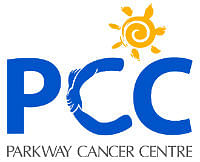Content provided by Parkway Cancer Centre
Targeted therapy and immunotherapy for blood cancers
Immunotherapy and targeted therapy give patients more options in the battle against blood cancers.
Sign up now: Get ST's newsletters delivered to your inbox
Jimmy Yap
Follow topic:

About 2,000 new cases of blood cancers, including leukaemia and lymphoma, are reported every year in Singapore, about six new patients diagnosed every day.
Typically, these cancers are treated by chemotherapy, radiation therapy, bone marrow transplants and stem cell transplants.
However, two new forms of treatment - targeted therapy and immunotherapy - are having an impact on the way some types of leukaemia and lymphoma are treated.
Targeted therapies block the growth and spread of cancer by interfering with specific molecules that are involved in the growth, progression, and spread of cancer. While targeted therapies can be effective, they are not a permanent solution as the cancer is able to evolve and become immune to the drug.
Immunotherapy, on the other hand, is a form of treatment that relies on the body's immune system to fight cancer. The body's immune system is already able to fight off bacterial and viral infections. Immunotherapy makes the immune system work against the cancer. It is also about removing the camouflage some cancer cells use to hide from the immune system. Immunotherapy can also continue working even after treatment stops.
Targeted therapy
In the treatment of leukaemia, targeted therapies have been added to the arsenal of the oncologist. Leukaemia is cancer of the blood cells that begins in the bone marrow.
It is usually grouped into two categories: chronic or acute. The most common type is acute myelogenous leukaemia (AML).
Among young children, acute lymphocytic leukaemia (ALL) is most common. A common adult leukaemia is chronic lymphocytic leukaemia (CLL). Chronic myelogenous leukaemia (CML), another type, mainly affects adults.
Depending on the type of leukaemia, different types of treatment are recommended. Until the advent of targeted therapy and immunotherapy, the main treatment options were chemotherapy, radiotherapy and stem cell transplants.
The use of targeted agents called tyrosine kinase inhibitors (TKIs) has changed the treatment process for CML, said Dr Lim ZiYi, senior consultant (haematology) at Parkway Cancer Centre. TKIs block the signals that tumours need to grow.
The use of Gleevec (imatinib mesylate) has changed the entire treatment process for CML. It used to be that there were no good treatment options for CML except for stem cell transplants, which most patients could not benefit from because they did not have a stem cell donor. As a result, most patients with CML would die within three years. However, TKIs like Gleevec are so effective that CML has effectively become a chronic disease where the majority of patients live for 10 years or more on TKI therapy.
Immunotherapy
The other new of therapy, immunotherapy, is also impacting the treatment of cancers. So far, immunotherapy has had the biggest impact in the treatment of a type of skin cancer, melanoma, and lung cancer. However, immunotherapy drugs are being used for other types of cancers such as blood cancers as well.
Tests have showed that two immunotherapy drugs, Opdivo (nivolumab) and Keytruda (pembrolizumab) have been able to shrink the tumours of patients with Hodgkin's lymphoma. Hodgkin's lymphoma is a cancer that starts in white blood cells called lymphocytes. Lymphocytes are part of your immune system.
Another kind of immunotherapy treatment involves creating designer immune cells to boost the body's T-cells, a special kind of white blood cell. These are known as CAR T-cells. These create designer receptors on T-cells to make them specific to tumour cells and also create a stimulating signal to tell CAR T-cells to start multiplying. It has shown promise in the treatment of ALL.
"Immunotherapy offers potential for synergy with existing treatments," said Dr Lim.
"Immunotherapy offers potential for synergy with existing treatments," said Dr Lim.
Note: Information is based on a presentation given by Dr Lim ZiYi at a medical seminar organised by Channel NewsAsia and Parkway Cancer Centre.
Find out more about cancer and how to fight it on ST's Fighting Cancer microsite.

